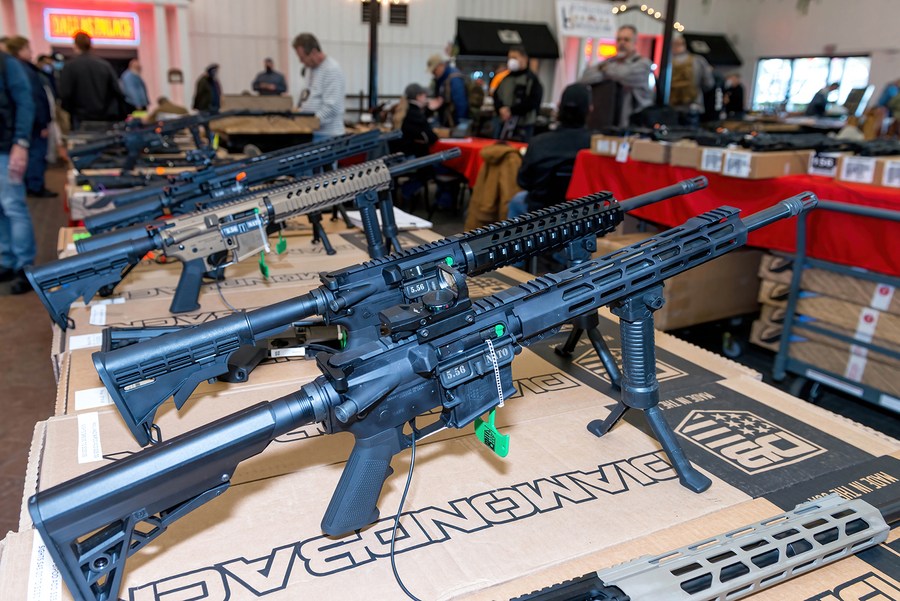Call of Duty: Misfire?

A gun is no longer the American patron saint; it has become the king of terror.
For most Americans, April 16 was just another Saturday. However, within less than 24 hours from the day’s early morning hours, multiple gunshot incidents occurred across the country. A shopping mall shooting in Columbia, South Carolina, injured 12 people; an armed assault in Pittsburgh, Pennsylvania, saw 90 shots fired at a crowd of some 200 partygoers, killing two minors and wounding at least nine.
The previous weekend proved even worse with Iowa, Illinois, Indiana, Georgia, Tennessee and Texas each reporting a shooting incident that killed at least three victims.
According to data released by American website Gun Violence Archives, as of early morning April 17, 12,502 had been killed and a further 10,024 injured in gun-related violence nationwide this year. Additionally, 138 cases of mass shooting—in which four or more victims are murdered with firearms—occurred over the same period.
The explosion in gun violence has long been a stain on American society, as well as a “clichéd” topic of heated debate. In recent years, as the public security situation continues to deteriorate, “buying guns for self-defense” seems to have become a much needed move for Americans. In some states, the authorities even encourage the possession of multiple weapons. Colorado congresswoman Lauren Boebert said in January 2021, “I will carry my firearm in [Washington] D.C. and Congress, because D.C. is one of the top 10 most dangerous cities in our country.”
A Washington Post report in 2018 carried the headline, “There are more guns than people in the United States.” It read in 2017 that Americans made up 4 percent of the world’s population, but owned about 46 percent of the entire global stock of 857 million civilian firearms.
Several U.S. administrations have sought tighter gun control measures. Recently, on April 11, President Joe Biden announced new steps aimed at regulating so-called “ghost guns,” as in the “use of untraceable, homemade weapons.” These efforts, however, do not target the essence of the American gun problem—and in reality prove almost futile.

The call of governmental duty is often limited to managing the purchase and possession of firearms; applying an overall ban has never been part of the mainstream voice. Gun control groups do exist, but perhaps the apparent “hesitation” to put a complete halt to gun sales is more a matter of popular belief or of the longstanding U.S. tradition of civilian firearms ownership.
The Second Amendment to the U.S. Constitution, passed in 1791, considers freedom to bear arms, like freedom of religion or speech, a basic right.
Civilian guns have undeniably played a significant role throughout American history. The original “minutemen,” militiamen ready to serve in combat “at a minute’s warning,” who achieved outstanding military successes during the Revolutionary War (1775-83) to this day are heroes in the eyes of many.
But this is 2022; almost 250 years have passed since said revolution. Fundamental changes have occurred in both the global climate and the “art” of war. A gun is no longer the American patron saint; it has become the king of terror.
Against the current social backdrop of increasingly polarized American politics and intensified racial conflict, gun ownership has done far more harm than good.
The gun issue may very well be an issue with the American mindset. It’s not just about the worship of firearms; it’s about some of the most outdated U.S. ideology that has manifested in a variety of ways, e.g., an unwavering belief in the Thucydides Trap of rising power-established power conflict, the borderline fanatical Cold War mentality, and a prejudice against all social systems that don’t align with Western democracy.
The world is changing. The U.S. certainly has a proud legacy, but an indulgence in past glories and applying a 200-year-old mentality to deal with current issues will obviously miss the mark.
 Facebook
Facebook
 Twitter
Twitter
 Linkedin
Linkedin
 Google +
Google +










